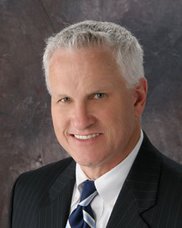
Orlando-based Mirabilis Ventures Inc. has filed three new lawsuits against companies it did business with, invested in or lent money to since 2005, including one firm owned by one of the richest men in America.
The suits -- two in Orange Circuit Court in Orlando and another in Tampa's federal court -- are the second wave of litigation filed this month by Mirabilis. They seek to recover millions from former top company executives, firms that owe money to Mirabilis or others it accuses of making fraudulent deals with the company.
Mirabilis, a holding company that announced earlier this month it lost at least $220 million, has shut down nearly all of its operations and is trying to generate cash to pay a large tax bill anticipated from an ongoing Internal Revenue Service probe.
"Basically, Mirabilis doesn't want to get stuck with someone else's tax bill," said Bob O'Malley, an Orlando public relations consultant hired by Mirabilis. "We're seeking to collect what could be the total amount of taxes."
Magnate named in suit
Among those named in the tax-related suit are Kenneth Hendricks, a Wisconsin construction supply magnate ranked 91st on the 2007 Forbes 400 list of wealthiest Americans. Another suit seeks to recover about $8 million in loans made to a dozen ex-Mirabilis security companies whose officers include Kevin Billings, a retired Secret Service agent from Orlando.
Billings was one of three security contractors detained and jailed in Africa's Democratic Republic of the Congo in May 2006 while working for a consulting company owned by Mirabilis' chief strategist, Frank L. Amodeo. The successful release of the three thrust Amodeo and Mirabilis into the public eye.
The lawsuits by Mirabilis, which once held interests in 70 human resource, construction, restaurant and security companies, follows scores of workers being laid off in Orlando earlier this year. The IRS and a federal grand jury are probing its operations.
One of the most recent suits, filed in Tampa, names Hendricks, his wife and their company, Amfinity Capital LLC. It seeks $230 million in damages stemming from Mirabilis' purchase of Amfinity's interests in two payroll outsourcing firms, Presidion Corp. and Presidion Solutions Inc.
The Presidion firms and others taken over by Mirabilis in the 2006 deal owe an estimated $173 million for federal payroll and Social Security taxes collected from workers' paychecks, O'Malley said. The suit said the Hendrickses did not disclose the tax problems and should be liable for them.
Morris Brooks Jr., attorney for the Hendrickses, sued Mirabilis earlier this year, saying it had defaulted on the $2.85 million purchase of Amfinity's interest in Presidion. Brooks said the couple did not run the companies and had nothing to do with the unpaid employment taxes.
Lawyer blames Mirabilis
"Mirabilis took our assets, didn't pay us our money and it's just that simple," Brooks said.
A second suit, filed in Orlando, seeks return of nearly $8 million in payroll advances made to Orlando-based security consulting firm Stratis Authority and 11 subsidiaries from 2005 to 2007 before they broke from Mirabilis in January.
The suit also accuses Stratis of failing to "properly maintain corporate compliance" with state and federal laws, an apparent reference to uncollected employment taxes.
Though no individuals are named in the suit, Orlando companies listed among those owing money to Mirabilis include A Very Private Eye, Gibraltar Integrity Corp. and RF Scientific Inc. Officers in those firms include Billings, the former Congo detainee; ex-Assistant Statewide Prosecutor Kellie Tomeo; and ex-Orlando police Officers Bill Eplin and Charles Rahn.
Billings could not be reached for comment.
Reached Tuesday, Rahn said he was "flabbergasted" by the suit and never signed any loan agreements with Amodeo or Mirabilis. Amodeo sold the private-investigation company back to him in March for $10, Rahn said.
Lawsuit called 'audacious'
Jim Abbott, the former majority owner of RF Scientific, called the suit "audacious." Money Mirabilis is seeking from RF includes the $350,000 it paid to buy the Orlando satellite communications company in March 2006, he said.
"They came and bought our company and now they're saying it was a loan?" Abbott asked.
The last of the most-recent suits accuses several investment companies and their principals of fraud and misrepresentation in multiple deals with Mirabilis from 2005 to 2007. Named are Forge Capital Partners LLC of Boca Raton; Argent Capital Advisors of Tampa, formerly known as Atlantic American Capital Advisors LLC; and principals Joseph Bryant of Jacksonville, Robert Moreyra of Tampa and Peter Collins of Boca Raton.
They could not be reached for comment.
Mirabilis spokesman O'Malley said the company invested $16 million through the various parties, including $2 million that was supposed to go into the Trump Towers project in Tampa but was diverted.
All the deals turned out to be plagued with problems, misleading finances and tax liabilities, the suit said.
Jim Leusner can be reached at [email]jleusner@orlandosentinel.com[/email] or 407-420-5411.
SOURCE
The suits -- two in Orange Circuit Court in Orlando and another in Tampa's federal court -- are the second wave of litigation filed this month by Mirabilis. They seek to recover millions from former top company executives, firms that owe money to Mirabilis or others it accuses of making fraudulent deals with the company.
Mirabilis, a holding company that announced earlier this month it lost at least $220 million, has shut down nearly all of its operations and is trying to generate cash to pay a large tax bill anticipated from an ongoing Internal Revenue Service probe.
"Basically, Mirabilis doesn't want to get stuck with someone else's tax bill," said Bob O'Malley, an Orlando public relations consultant hired by Mirabilis. "We're seeking to collect what could be the total amount of taxes."
Magnate named in suit
Among those named in the tax-related suit are Kenneth Hendricks, a Wisconsin construction supply magnate ranked 91st on the 2007 Forbes 400 list of wealthiest Americans. Another suit seeks to recover about $8 million in loans made to a dozen ex-Mirabilis security companies whose officers include Kevin Billings, a retired Secret Service agent from Orlando.
Billings was one of three security contractors detained and jailed in Africa's Democratic Republic of the Congo in May 2006 while working for a consulting company owned by Mirabilis' chief strategist, Frank L. Amodeo. The successful release of the three thrust Amodeo and Mirabilis into the public eye.
The lawsuits by Mirabilis, which once held interests in 70 human resource, construction, restaurant and security companies, follows scores of workers being laid off in Orlando earlier this year. The IRS and a federal grand jury are probing its operations.
One of the most recent suits, filed in Tampa, names Hendricks, his wife and their company, Amfinity Capital LLC. It seeks $230 million in damages stemming from Mirabilis' purchase of Amfinity's interests in two payroll outsourcing firms, Presidion Corp. and Presidion Solutions Inc.
The Presidion firms and others taken over by Mirabilis in the 2006 deal owe an estimated $173 million for federal payroll and Social Security taxes collected from workers' paychecks, O'Malley said. The suit said the Hendrickses did not disclose the tax problems and should be liable for them.
Morris Brooks Jr., attorney for the Hendrickses, sued Mirabilis earlier this year, saying it had defaulted on the $2.85 million purchase of Amfinity's interest in Presidion. Brooks said the couple did not run the companies and had nothing to do with the unpaid employment taxes.
Lawyer blames Mirabilis
"Mirabilis took our assets, didn't pay us our money and it's just that simple," Brooks said.
A second suit, filed in Orlando, seeks return of nearly $8 million in payroll advances made to Orlando-based security consulting firm Stratis Authority and 11 subsidiaries from 2005 to 2007 before they broke from Mirabilis in January.
The suit also accuses Stratis of failing to "properly maintain corporate compliance" with state and federal laws, an apparent reference to uncollected employment taxes.
Though no individuals are named in the suit, Orlando companies listed among those owing money to Mirabilis include A Very Private Eye, Gibraltar Integrity Corp. and RF Scientific Inc. Officers in those firms include Billings, the former Congo detainee; ex-Assistant Statewide Prosecutor Kellie Tomeo; and ex-Orlando police Officers Bill Eplin and Charles Rahn.
Billings could not be reached for comment.
Reached Tuesday, Rahn said he was "flabbergasted" by the suit and never signed any loan agreements with Amodeo or Mirabilis. Amodeo sold the private-investigation company back to him in March for $10, Rahn said.
Lawsuit called 'audacious'
Jim Abbott, the former majority owner of RF Scientific, called the suit "audacious." Money Mirabilis is seeking from RF includes the $350,000 it paid to buy the Orlando satellite communications company in March 2006, he said.
"They came and bought our company and now they're saying it was a loan?" Abbott asked.
The last of the most-recent suits accuses several investment companies and their principals of fraud and misrepresentation in multiple deals with Mirabilis from 2005 to 2007. Named are Forge Capital Partners LLC of Boca Raton; Argent Capital Advisors of Tampa, formerly known as Atlantic American Capital Advisors LLC; and principals Joseph Bryant of Jacksonville, Robert Moreyra of Tampa and Peter Collins of Boca Raton.
They could not be reached for comment.
Mirabilis spokesman O'Malley said the company invested $16 million through the various parties, including $2 million that was supposed to go into the Trump Towers project in Tampa but was diverted.
All the deals turned out to be plagued with problems, misleading finances and tax liabilities, the suit said.
Jim Leusner can be reached at [email]jleusner@orlandosentinel.com[/email] or 407-420-5411.
SOURCE





























